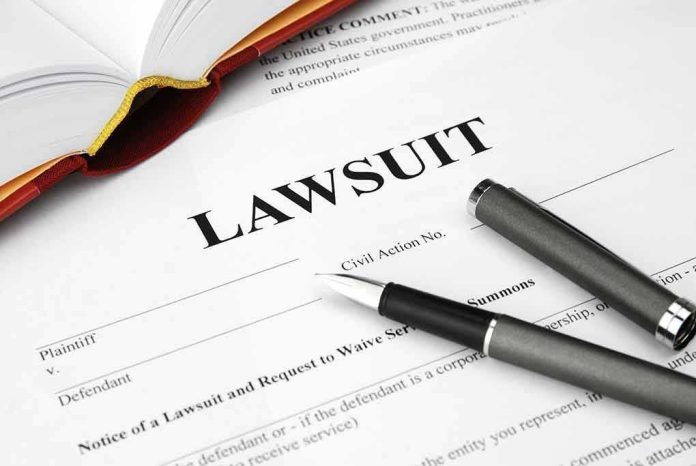
On a night meant for fireworks and celebration, 28 lives were swept away by floodwaters at a storied Texas summer camp, igniting a legal and moral reckoning that now challenges how we define responsibility in the face of nature’s fury.
Story Snapshot
- Families are suing Camp Mystic after 28 deaths in a July 4, 2025 flash flood, alleging gross negligence.
- The camp’s “never evacuate” policy and history of ignoring flood warnings are central to the lawsuits.
- Camp Mystic denies responsibility, calling the tragedy an unavoidable “act of God.”
- The lawsuits could set new standards for youth camp safety and disaster accountability nationwide.
When Tradition and Tragedy Collide: The Flood That Changed Everything
Camp Mystic, nestled along the Guadalupe River in Kerr County, Texas, has long been a summer haven for generations of girls. On July 4, 2025, the camp’s legacy took a dark turn. As patriotic festivities faded and campers drifted to sleep, a violent flash flood surged through the valley. Water engulfed cabins in minutes, trapping 25 children, two young counselors, and the camp’s director, all of whom perished before dawn. In the flood’s wake, families faced unimaginable loss—and a growing sense that their children’s deaths could have been prevented.
Local officials launched investigations, but it was the families—many of them prominent Texans—who demanded answers. They claimed the camp’s location in a notorious floodplain was no secret. Historic flood markers lined the river, and warnings had been issued before. Most damning, the families allege, was Camp Mystic’s “never evacuate” policy, a tradition that prioritized the camp’s uninterrupted operation over the safety of its youngest charges. The lawsuits allege that some parents even pleaded with camp officials to take storm warnings seriously in the days before the disaster. Their concerns, they say, were dismissed as overprotective alarmism.
The Battle for Accountability: Lawsuits and Public Outcry
On November 10, 2025, three lawsuits landed in Texas courts, each seeking at least $1 million in damages. The legal complaints spell out a chilling narrative: Camp Mystic’s leadership, including the late director Dick Eastland, ignored clear risks and clung to outdated emergency protocols. Plaintiffs assert that the camp’s refusal to evacuate—despite mounting evidence of imminent danger—amounts to reckless disregard for human life. The families do not just want compensation; they want transparency, reform, and, above all, public acknowledgment that the tragedy was not simply an “act of God.”
Camp Mystic’s legal team, led by attorney Jeff Ray, counters that no one could have predicted the scale or speed of the flood. They insist the camp followed all required guidelines and that the storm’s ferocity was unlike anything in living memory. By framing the event as an unavoidable catastrophe, the camp hopes to deflect liability and preserve its long-standing reputation. The public, meanwhile, finds itself divided—some see a venerable institution besieged by ambulance chasers, while others feel the camp’s denial only deepens the community’s wounds.
Unanswered Questions and the Future of Youth Camp Safety
As the lawsuits move forward, the stakes extend beyond Kerr County. Legal experts point out that if Camp Mystic is found grossly negligent, the verdict could send shockwaves through the entire youth camp industry. What duty do camps owe to children in known hazard zones? Must tradition bow to the realities of extreme weather, or can institutions hide behind the unpredictability of nature? Safety professionals argue that prior knowledge of risk—and a failure to act—crosses the line from misfortune to culpability. Disaster management scholars echo this, warning that the “act of God” defense rings hollow when patterns of negligence are established.
Texas lawmakers, already facing pressure to update floodplain regulations, now eye reforms that could impact every youth camp in the state. Parents everywhere are watching. The trust that once flowed freely between families and summer camps has eroded, replaced by skepticism and a demand for accountability. The industry must grapple with new realities: climate unpredictability, legal exposure, and the non-negotiable imperative to protect children at all costs.
Community Aftermath and the Long Shadow of Loss
The human cost of the Camp Mystic flood reverberates far beyond the courtroom. Families mourn daughters and sisters who never returned. Survivors, many with deep physical and emotional scars, struggle to process what happened. Local businesses face economic losses as the camp’s closure leaves a gaping hole in the summer season. The Kerr County community, once proud of its storied camp, now debates whether to rebuild on the floodplain or relocate entirely.
Camp Mystic, for its part, has announced plans to partially reopen a sister site next summer—an act viewed by some as a step toward healing, by others as a refusal to fully reckon with past mistakes. The families’ lawsuits, still pending, promise to keep the debate alive. As the legal process unfolds, the case may force a new conversation in America about where accountability ends and tragedy begins. The memory of those lost on that stormy July night will haunt every decision made from here on out, demanding that safety never again play second fiddle to nostalgia or profit.
Sources:
ABC News: Families of Camp Mystic campers, counselors who died in Texas flood file lawsuits



